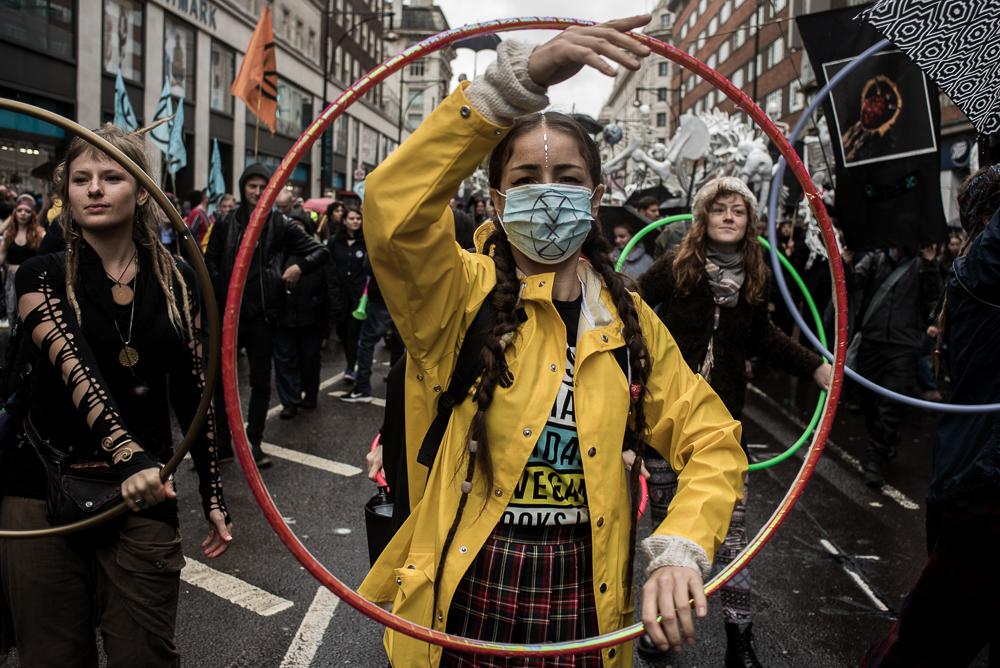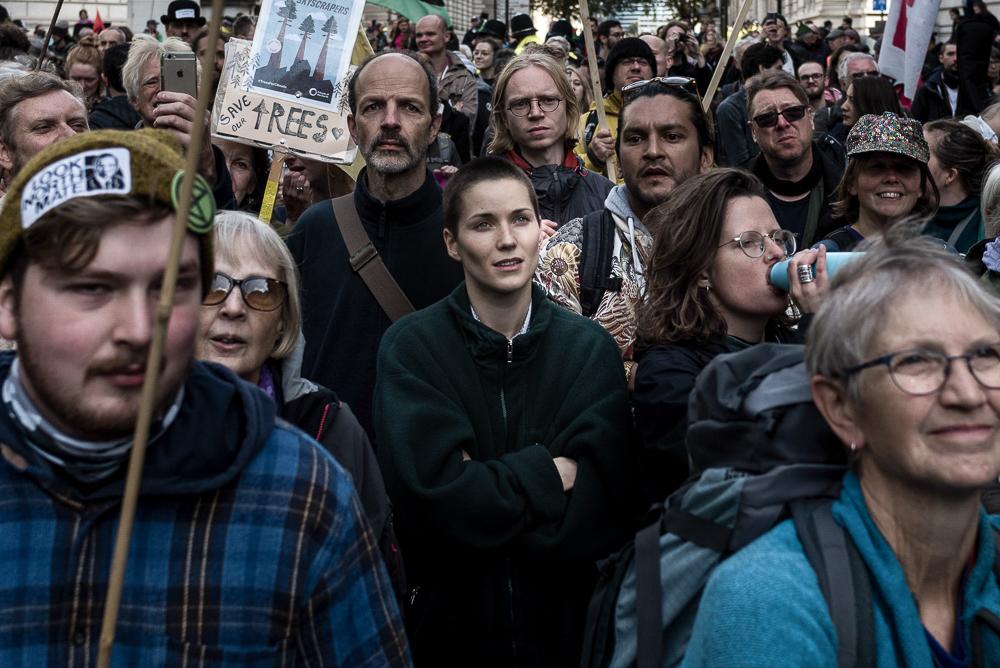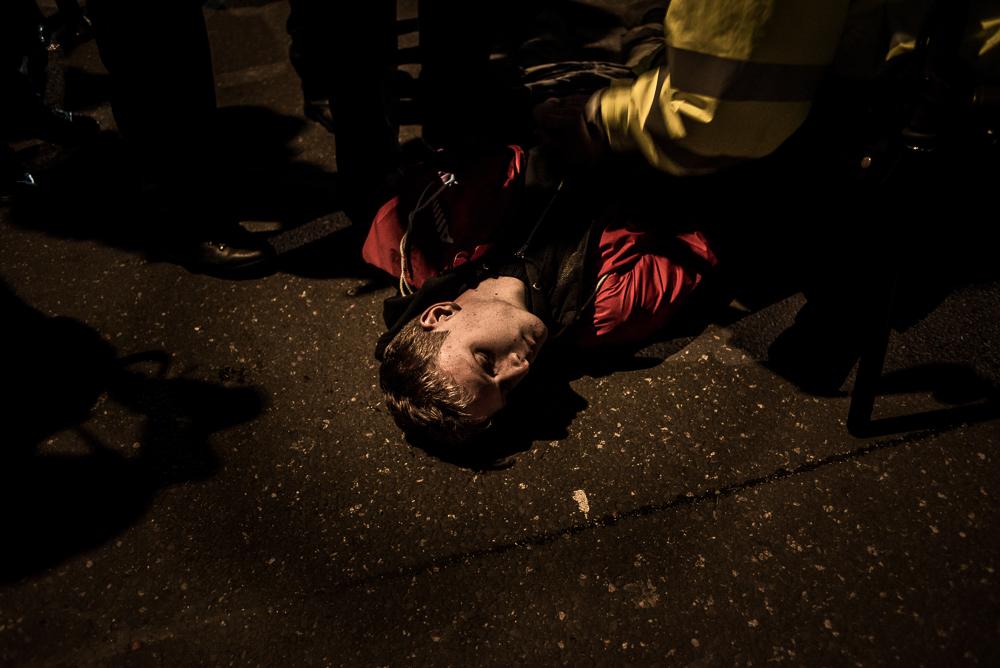We, the rebels
2019 / 2021
"This is our darkest hour. Humanity finds itself embroiled in an event unprecedented in its history...The science is clear: we are in the sixth mass extinction event and we will face catastrophe if we do not act swiftly and robustly...We, in alignment with our consciences and our reasoning, declare ourselves in rebellion against our Government and the corrupted, inept institutions that threaten our future...We refuse to bequeath a dying planet to future generations by failing to act now. We act in peace, with ferocious love of these lands in our hearts. We act on behalf of life."
(Declaration of Rebellion – Extinction Rebellion)
Roger Hallam, researcher at King's College of London and Gail Bradbrook, molecular biophysics researcher at the University of Manchester, founded Extinction Rebellion in 2018, a non-violent socio-political movement to prevent climate change, halt biodiversity loss and minimise the risk of human extinction and ecological collapse.
A movement that uses maths as a tool to plan protests and measure their effectiveness. The founders spent years studying the history of social protests from 1900 until today, each time extrapolating the key factors that led to success or failure. From this data they create the protest algorithm, thanks to which they build the strategy of their actions.
Extinction Rebellion protests, considered acts of civil disobedience and inspired by movements based on non-violence, paralyze cities, involving tens of thousands people all around the world. Blocked bridges, human chains, artistic performances and activists lying down and glued to streets and subways. In London during one of the international rebellions, Scotland Yard police arrested thousands of people whom Boris Johnson, Prime Minister of the United Kingdom, described as "Rebels, uncooperatives crusties living in bivouacs that smell of hemp".
Activists ask politics to tell the truth about the ecological emergency, to zero carbon emissions by 2025 and to make a national citizens' assembly operational to oversee regime change as part of the creation of a new democracy.
They believe in a regenerative, healthy, resilient and adaptable culture that takes care of the planet and life, as the most effective way to create a thriving future for all humanity, constantly improving in small steps to heal and progress, as individuals and as a community.
















